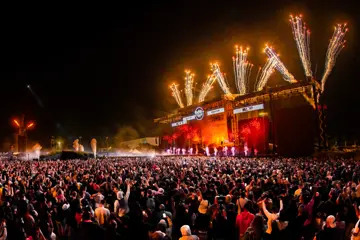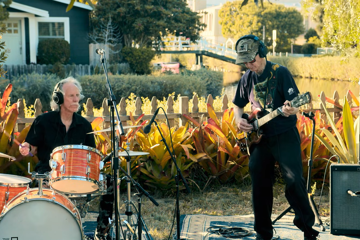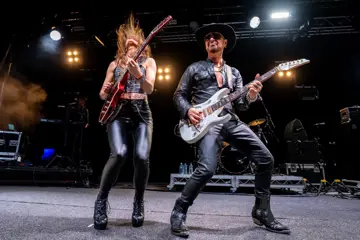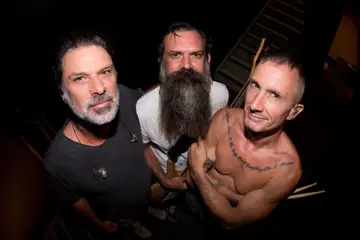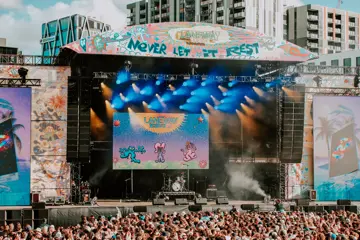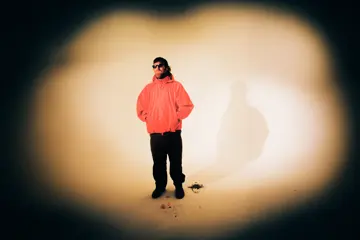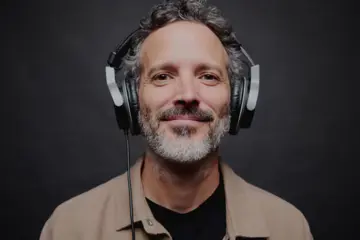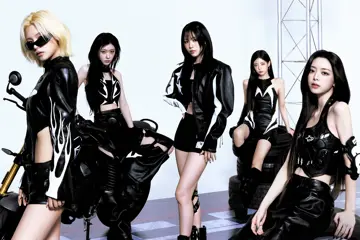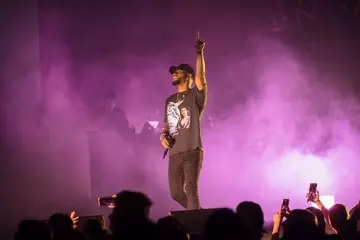So that we don't get off on the wrong foot let's get one thing clear before we proceed: 'old dog' is a term used here endearingly, as a reflection of Andrew Upton's consistent and ongoing achievements. The co-Artistic Director of Sydney Theatre Company has delivered lauded adaptations and translations of works from the like of Ibsen and Chekov during his career.
So, to return to our introductory question – it seems the answer is a 'yes', and one delivered with a puppy-like enthusiasm to boot. “It's nice, it's nice,” he'll say through out our conversation, “It's good,” the process has him apparently excitable. Working alongside director Simon Stone [whose adaptations (drastic, radical, essential – it depends who you ask) of Thyestes and The Wild Duck have proved hits with critic and audiences alike in recent times] for the first time, the two are adapting Ingmar Bergman's film Face To Face, an ironic tragedy that documents the psychological undoing of psychiatrist Dr Jenny Isaksson, for stage.
Upton, for his part, seems revitalised by this taking of a new approach to the creation of a work, pushed into a new realm by this first-time collaboration. “One of the attractions for me, why I put my hand up, was we knew from Baal, and you know, we'd heard anecdotally around that Simon had this free approach, and that's the exciting thing for me as a writer.”
Upton explains his attraction to Stone's method, where rehearsals often commence long before a final script is at hand. “The last three weeks of rehearsals have been this process of – not so much with the first half, because that's a fairly stable piece of drama, some of the scenes have moved but the content hasn't changed – the second half, that kind of 'unconscious world' we've been trying this approach and that approach and it's fabulous! Discombobulating at times, to be sure, but a good rehearsal process should be discombobulating – and that has been the last three weeks, and we're kind of, literally today, putting to bed the final shape of the script. Which is great, halfway through rehearsals, it's great!
Don't miss a beat with our FREE daily newsletter
“It's fascinating; you don't lose the time with the actors anyway, because those moments with the actors are still connected to the drama and connected to the play. So it's fabulously liberating.”
This learning of new tricks seems to befit Upton so well because, as he puts it, it's in line with what he sees as the very essence of theatre; its creation. Not the source texts that inspire it, or the performances that portray it, but the act of making theatre. “I'm involved with theatre because essentially I'm interested in making theatre,” Upton admits. “Not because I think of myself as a writer who's got this great theatrical 'thing' – so I love to be part of the theatre-making process and my skill is the writing bit, or, you know, seems to be,” he adds somewhat awkwardly, before the excitement of the ongoing task at hand reasserts itself once more with a chirpy, “So I volunteered myself to that process and I have loved it. It's what I love about theatre; it's making it, trying it out, constantly making – you need a director with a vision, but,” he cautions, “that vision doesn't have to be prescriptive or explicit. It can just be an understanding of where things need to get to.”
In the case of Face To Face, things need to get to the space that delicately exists in an unstable mind. “The idea at its core is quite still, and it's finding that kind of theatrical fulcrum – between life and death, really, or pre-suicide/post-suicide.”
Face To Face in theatres from Tuesday 7 August to Saturday 8 September, Sydney Theatre.



